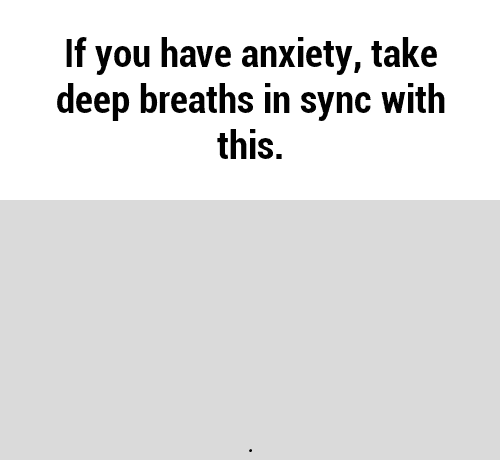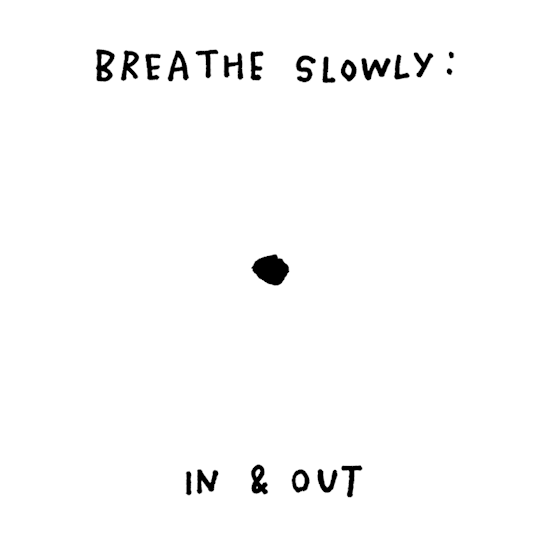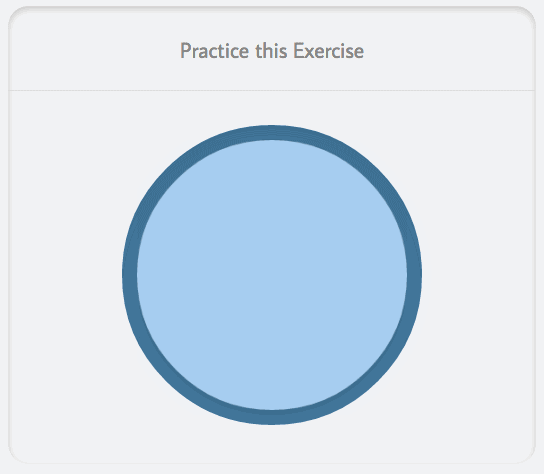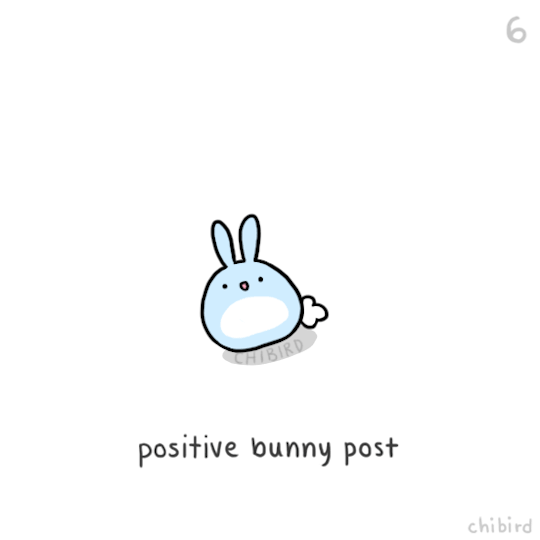Ellen, 25 · gay aunt, tea lover, blood type: anxiety mixed with depression. · biologist, artist, wannabe graphic designer person.
Don't wanna be here? Send us removal request.
Photo

Disclaimer: This is what I have done for my intro level content-based classes that include multiple choice exams. This obviously is not going to be as effective for some math/science classes. (Also, I’m sure there are others who use this method, so I’m not claiming to have made it up or something).
Step 1: You’re basically going to be writing your own practice exam. If your professor provides a study guide, this will be no challenge at all. If not, just use your lecture notes. You need to take the information and phrase it the way it would appear on a multiple choice exam.
Example:
If the study guide says:
Blue flowers grow in Canada, but red flowers grow in Mexico.
You’d writer along the lines of:
In what regions do blue and red flowers grow?
Repeat this for all the information in your study guide or your own notes.
Step 2: Make yourself an answer key. Don’t answer the questions as you write them. Write all the questions, and then go back and answer them one by one. This is basically an extra study session wrapped up in the creation of the practice exam! It also keeps you from memorizing things just because of the order of the questions.
Step 3: Test yourself. I usually test myself for the first time 24-48 hours after I make the practice exam. See how many of the questions you can answer correctly. When you check the answers, mark the incorrect ones for review. Pretty self-explanatory.
Step 4: Look over the chapters pertaining to the information you consistently miss. Repeat steps 3 and 4 until you’re getting all of them right.
If you can recall the information when prompted with an open-ended question like, “What is the geographic difference between red and blue flowers?”. Then you’ll be able to recall it twice as easily when given multiple answer choices. This has worked like a charm when studying for intro psych, biology, political science, etc.
It can be a little bit time consuming, but it’s worth it. I usually start 4-5 days before the test day, sometimes earlier for more difficult classes. It’s made class material much more manageable, and I’m always pleased with my exam results when I use this method. I used it for all of my finals this semester.
I hope I’ve explained this well enough, but if anyone has questions just message me!
Good luck on finals!
971 notes
·
View notes
Text
because i’m a huge tea nerd, i made a tea brewing master list. enjoy.
BLACK TEA [ more oxidized than other types, which is what makes black tea taste stronger ]
Temperature: Black teas won’t brew if the temperature is below 90°C (194°F). Black tea varieties brew best near the boiling point.
Brew time: 4 minutes. Leave the tea bag / leaves in longer for a stronger flavour.
GREEN TEA [ often dubbed the ‘healthiest tea’ when really there is no clinical evidence of health benefits (doesn’t mean there aren’t any) ]
Temperature: 80-85°C (176 to 185°F). The hotter the tea, the more bitter it will taste.
Brew time: can vary. Usually, 30 seconds - 3 minutes will do just fine, but you can brew longer for a stronger taste.
OOLONG TEA [ most similar to black tea; requires similar manual production and it comes from the same plant - camellia sinensis ]
Temperature: 82 to 96°C (185 to 205°F). if the water is too hot, you will scorch the tea leave, which can result in a bitter, unpleasant taste.
Brew time: 5-7 minutes. you can actually reuse the leaves without the flavour weakening too much (unlike other varieties, such as green tea)
YELLOW TEA [ the rarest variety due to complex manual production + low demand ]
Temperature: 75-80°C (167-176°F).
Brew time: 3-4 minutes. Leave a lid over the tea cup while brewing
WHITE TEA [ a delicate lad; white tea is not rolled or oxidized, which gives it a ‘lighter’ taste ]
Temperature: 82 to 96°C (185 to 205°F). Same as oolong !! if the water is too hot, you will scorch the tea leave, which can result in a bitter, unpleasant taste.
Brew time: 3-4 minutes. Like any other variety, you can brew as long as you want depending on personal taste.
HERBAL TEA [ often not considered a real tea because it doesn’t come from an actual ‘tea plant’ ]
Temperature: nice and hot. Brew at the boiling point for best results.
Brew time: about 6 minutes. But since there are so many varieties of herbal tea, it’s hard to give an exact time. Really, just brew to taste (but 6 minutes is a good minimum time for most varieties)
BREWING TIPS
The larger and more delicate the tea leaves are, the lower you want the temperature to be. This goes for all tea varieties (varie-teas, if you will)
Pour the water over the tea bag / leaves. Don’t dunk the tea bag (it actually can change the flavour - see the next bullet point)
Pouring height: the height you pour the water from can actually change the flavor (wild right) !! it aerates the tea and creates more oxidation. The higher the pour, the more aeration. Plus it’s more fun to pour from really high.
If you brew a pot full, it’s best to warm the pot before hand to prevent sudden cooling of the tea. If you’re just drinking one cup, this is probably unnecessary (but i mean, it’s your tea. do what you want).
Microwave your tea water. Who cares. It’s harder to gauge the temperature when you microwave it, but honestly, it’s fine.
6K notes
·
View notes
Photo

This is my routine for learning brand new Kanji using flash cards, of course everyone is different but this works for me, so I thought I’d share!
Keep reading
299 notes
·
View notes
Text
Two types of procrastination:
1. Eh, I’ll have time later. *deliberately watches cat videos.*
2. I’d like to do it now, but there’s just something else I really have to do right now instead, I can’t remember what that thing is but I have to do it immediately, as soon as I figure out what it is, and then I can do the other thing maybe once I’ve done whatever so important that I’ve forgotten, oh look a cat, I love cats, cats are the best!
349 notes
·
View notes
Photo

hey have you guys seen my video about ways to journal? featuring this spread about my favorite song lyrics (love that they’re all from musicals)
2K notes
·
View notes
Text
some study tips from my psychology teacher 📖
STOP Cramming
cramming is good for the short term, such as just before a test (i’m talking like an hour before), but shouldn’t be used as an effective study method. you only learn the information in the exact way you read it, so any practical application on your test won’t be easy to answer. you also will struggle with answering the same questions you studied for, but asked differently.
Spacing Effect
the spacing effect is essentially the opposite of cramming. instead of doing a 4 hour study session, break it up into groups of 30 minutes. do 30 minutes, take a nice long break, go back for 30, and repeat. that break in between gives your brain time to encode and store the information. this can be done in either one day, or over the course of a few days before the test.
Mnemonic devices are your best friend when dealing with lists of information
any sort of rhyming scheme, letter association, acronyms, etc. is proven to help you. any american can say ROY G. BIV and know exactly what they’re talking about, another example is HOMES for the great lakes. another major example is “Please Excuse My Dear Aunt Sally”/PEMDAS for the order of operations. this helps with lists, i use it all the time in biology for stuff like the Levels of Classification or Characteristics of Living things. for AP Euro i remember “Descartes with a D” because he “Doubts and wrote Discorse on Method”.
Hierarchy Organizing for Midterms and Finals
by breaking information down into a hierarchy, you can figure out how to study all your chapters at once. these are often called “graphic organizers” and it takes the whole topic, then breaks it into subsections, then subsections of those subsections. here’s an example i found for my Memory unit

the whole unit is memory, the subtopics are sensory memory, short term, then long term. then comes the subdivisions of long term memory and so on. this is wonderful for study planning in regards to large information tests.
these are just some of the tips we talked about, and obviously they won’t work for everybody, but it’s really helped my studying process because it’s literally how the brain processes information best for long term storage and retrieval.
5K notes
·
View notes
Text
remember the softest days. remember the songs humming on the radio while you were with your best friends. remember the compliments about your pretty eyes, the times you laughed while crying and the most loving hugs. remember the dogs that ran up to see you, the color of people’s eyes in the sunlight, the way you felt when you watched your favorite film for the first time. remember your best achievements and the way you grew from your saddest evenings. your life is much more beautiful than you perceived when you remember all of the good things.
30K notes
·
View notes
Text
Studying with mental illness:
Hi so recently I took a break because my anxiety and depression had a spike?!? I don’t know how to explain it. I’ve made a post about it to show why exactly I had to take some time away. Anyway I thought I’d give a few ideas and tips for studying when you have a mental illness. A lot of them can be used by anyone but are very important
Take regular study breaks rather than do it all in one go. I tend to only be able to focus on tasks for a certain amount of time before I have to change so it’s good to do 20 mins then change the task
Look at maslows heirarchy of needs

You need to fulfill the bottom four before you can even begin to study. I think this is helpful for people with mental illness because often it’s easy to forgot and disregard these needs so it gives us a chance to focus not them.
Talk to your school and teachers. My teachers would be fine if I had to leave their class due to anxiety so they let. E go if I need to. My teachers tend to also ask me how I’m doing very often which is small but to me is important. It can also help with elongating due dates.
Do more on good days and less on the bad ones. I’m more motivated and energised on good days as is everyone else so I can do extra work whilst on bad days you may do less or none at all. Utilise the good days so you don’t feel so bad for not doing much on bad days.
Celebrate the little things. Read for 5 mins? Celebrate! Study for 10? Celebrate! Actually get up and do something on a bad day? Celebrate! Encourage yourself with rewards or even just a pat on the back.
Minset. I’ve said this so many times but just tell yourself you can. Saying it may even teach you to believe it because saying you can may make you even slightly better.
Sleep well. Referring back to the heirarchy but it makes a difference.
Take time for yourself. Don’t continuously study cause it’ll just make you feel a lot worse. Sometimes you might have to force yourself to read over stuff but only in extreme circumstances and never to the point where you feel a lot worse.
Understand it’s ok to feel this way. I often feel terrible and can’t do anything but I understand that it’s not my fault and if I try then I can get better. You’re amazing and you can do it.
Anyway I’m hoping these make sense ahah I’m not sure if they do or not but wanted to share some key tips that I’ve been thinking about recently. I’ve had to take the week to just think some stuff through and haven’t been able to do everything as well as I’d hope but it’s important. To all my followers or people reading this who are struggling just know I’m proud of you!
@hastily-written
2K notes
·
View notes
Text
you have one life.
stop settling for less and make the most out of what you have. afraid of chasing something you love? do it and experience it and if it hurts in the end at least you know you were brave enough to take a chance. afraid of wasting away your 20s in grad school? make the most out your social life. dump bad company and associate yourself w good vibes. balance this with hard work and it’ll be so worth it in the end. feeling inadequate and lost? take advantage of the internet. blahtherapy.com is where i used to vent my problems out anonymously to strangers and it was rlly comforting for me. research and discover your interests and how you can pursue them. stop settling for a life the world has given you and create your own life with the resources you’ve been given.
2K notes
·
View notes
Text
Safety Advice for Women Traveling Alone
I just saw a post asking for advice about how women traveling overseas alone can avoid harassment and so I just spent an hour looking this up to answer the post. I thought I would share it with you all in case anyone was considering it. I have traveled by myself in the past (though not recently), so I’ve picked some of the more practical ones. I’ve included some links at the end of the post where you can find more tips. Of course, I’m not saying you have to do all of these steps, and it really depends on where you are traveling to, but take and use what may be helpful to you. Perhaps share with friends you know might be making such a trip in the future.
Here are some doable, practical advice that you might be able to use to avoid unwanted advances and harassment:
Wear a fake wedding ring. You should also carry a photo of your husband (or an imaginary one), which you can show to persistent suitors. Being seen as married can lower your profile and maybe stave off some uninvited advances.
Wear dark glasses/sunglasses to avoid eye contact. In some cultures, meeting a man’s gaze may suggest that you want his company. This can also help so they don’t know that you have caught on to their suspicious movements so you can have the element of surprise if you need to act.
Act like you know where you are going and walk with confidence. Don’t look at maps or your phone in public if you are lost. Go into a coffee shop and figure it out there.
When you get in a cab or in a potentially sketchy place, take out your phone and pretend to call someone to tell them “I’m almost there. I’ll be there by XXX” so the driver thinks you are meeting someone at your destination. You should also give your current location loudly so they think people will come find you if you don’t show up as expected.
If you are getting a lot of unwanted advances, and if possible where you are, carry a small, but noticeable knife hanging off your belt (maybe a small hunting knife). The person who shared this said it quickly decreased the number of unwanted advances she got off the streets. (Be aware you will likely not be be to take this with you on carry-ons in the plane. Check it in your luggage or purchase at your destination. Also, this is mostly recommended as a deterrent. As this is a weapon, do not carry it around unless you are comfortable with it.)
Other helpful advice:
Carry a rubber doorstop to wedge from the inside of your room at night.
Bring a portable door or window alarm.
Carry a safety whistle (good for calling a cab too).
Don’t tell people you’re traveling alone if you can help it. Pretend you have a husband or friend who knows where you are and is waiting for you to come back at a certain time.
Track your route in the cab through google maps.
If you’re listening to music, don’t wear both headphones so you can be aware of your surroundings.
Along with standard travel medications (antibiotics, antidiarrheal, etc.), consider bringing emergency contraception. Where you are traveling to might not have the most accessible healthcare, and this is an unfortunate reality.
Always err on the side of safety. Don’t worry that you might be seen as paranoid or even rude to leave anywhere if you feel like something is off. Be safe!
Here are the links with more tips:
http://www.forbes.com/sites/elisadoucette/2013/02/07/sarai-sierra-emphasizes-that-women-need-to-keep-traveling/#65ae469a1f04
https://www.buzzfeed.com/jessicaprobus/46-incredibly-useful-safety-tips-for-women-traveling-alone?utm_term=.jm1AeyYEO#.hfDo372zq
http://www.legalnomads.com/wds#solo
1K notes
·
View notes
Photo




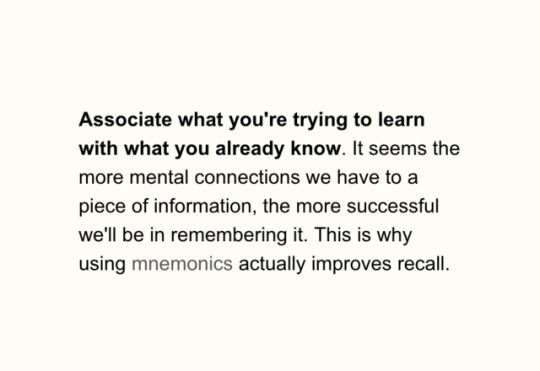

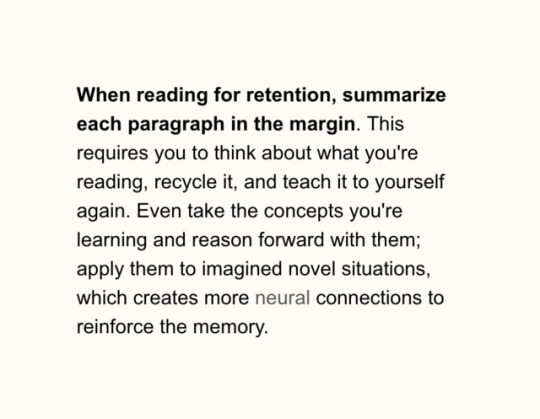

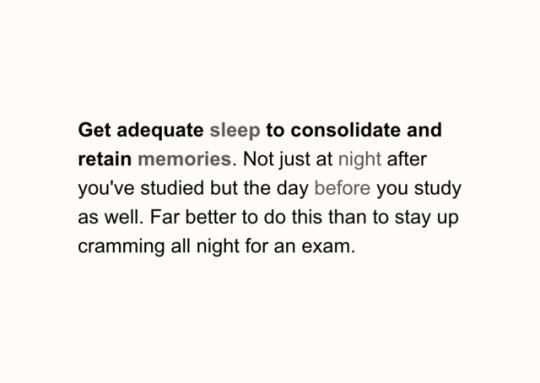
Eight Ways to Remember Anything by Alex Lickerman M.D.
Reference: Research-based strategies to boost your memory and keep it strong via psychology today
58K notes
·
View notes
Text
I love kids they’re all like.. “when i grow up i’m gonna be an astronaut and a chef and a doctor and an olympic swimmer” like that self confidence! That drive! That optimism! Where does it go
366K notes
·
View notes
Text
i have goals. and i have plans. but if those things don’t work out, it doesn’t mean i’m a failure. it just means i have to recalibrate and reassess. if one goal isn’t met it doesn’t invalidate all the other goals i will have in my life time.
37K notes
·
View notes
Text
ok universe, i’m ready to feel good things. make me feel good things.
2M notes
·
View notes
Photo
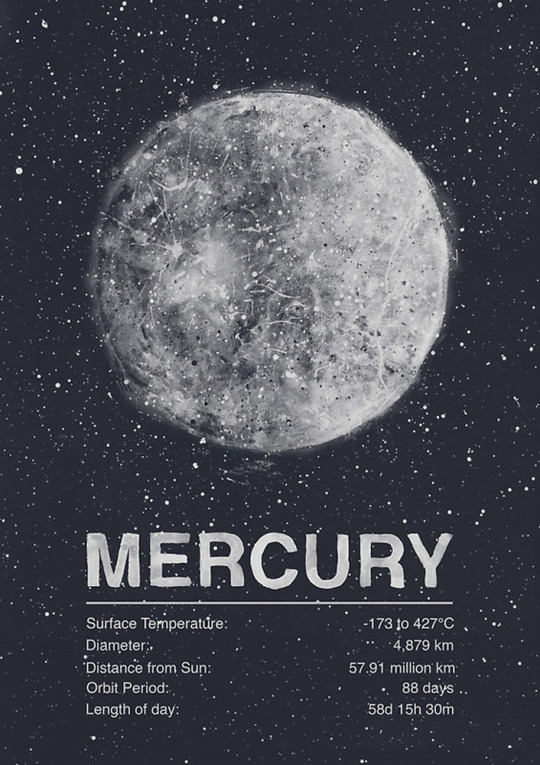








The planets! Includes surface temperature, diameter, distance from sun, orbit period, and length of day.
25K notes
·
View notes
